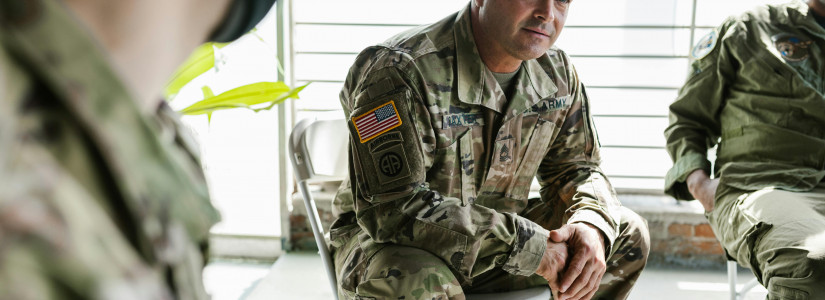Georgia Issues Grant Money to Help Students During Pandemic
Georgia Issues Grant Money to Help Students During Pandemic
When the President signed the $2.2 trillion Covid-19 stimulus package into effect, a lot of people's initial impression was that it was a huge sum of money that would solve a lot of issues. However, once broken down among 50 states, thousands of towns and cities, and tens of thousands of institutions, not to mention millions of Americans, it's basically only a drop in the bucket. However, many college students in Georgia are very happy right now that they're about to receive some stimulus relief, even if it is a relatively small amount that will be spent quickly.
Early on Thursday, April 9, the federal government announced that they would be giving around $6.3 billion to America's colleges and universities so that these institutions could hand out cash grants to low-income students. The reasoning is simple: Even though most of these students are receiving education through tuition which is paid through student loans, most still have living expenses. Many of them have to work while in college, and no longer have a job to go to. The pinch is felt by college students as much as anyone else, and so the government is hoping this money will help amid the growing virus pandemic in the nation.
In total, $31 billion was set aside for all schools in America. Colleges will only get roughly less than a quarter of this funding, but that's likely as best as the government can do with this particular package. If the virus continues on for months, there will be more rounds of stimulus spending.
For Georgia specifically, they will receive a little more than $300 million for both their public and private campuses and tech schools throughout the entire state. Half of this money, by government decree, must be spent on emergency aid. Food, materials, tech, and other things that students need to excel in school must be provided through this stimulus by granting the money to low-income students.
Jennifer Lee, of the Georgia Budget & Policy Institute, stated that the "money is going to help, but is going to go fast," when asked about the total amount that will be allocated for Georgia's schools to grant to students.
As far as when the students will get their money, all the authorities can say here is that it should be soon. The stimulus was signed back in March, and to date most people are still wondering when they will get the money. No monetary payments have been given out to citizens yet, nor to struggling, low-income students who desperately need it.
The Roll of Private Industry
One of the biggest criticisms voiced about the amount of this Georgia college stimulus is the fact that it includes both public and private institutions. Many believe that since students of public institutions are typically in a lower income bracket, private institutions need to step up and eat some losses like everyone else, rather than relying on the federal government to fill their coffers for student handouts. Some economic experts also agree that this makes sense. Private colleges have larger endowments, donors, legacies, and other ways of staying afloat, especially considering that at least half a dozen Georgia schools are huge money makers in NCAA sports.
So if only private institutions ate some losses and handled their own students with their own funding, low-income students at public universities could have more financial relief.
The real hang-up here in the government not allocating the money this way is because of students. Plenty of private institution students are still low-income, and the fact is that it's not a mandatory role of a private institution to hand out money in times of needs. It's something that's entirely voluntary. While it might make the university look good to be charitable, most are simply not going to do that. Private institutions of higher learning are one of the biggest businesses in the nation today, and they seem to not want to eat any financial loss at all.
There are a lot of private businesses out there giving their employees bonus pay and other benefits to help through these difficult times. Colleges don't seem to be nearly as charitable. Though to be sure, these are also the same institutions that greedily scarf up sports television contract money and not only refuse to pay student athletes, but also make it against the rules for those athletes to use their talent to make money.
Overall, a lot of Georgia's students should be helped with this stimulus. Though if private industry would kick in, more could be accomplished.
When the President signed the $2.2 trillion Covid-19 stimulus package into effect, a lot of people's initial impression was that it was a huge sum of money that would solve a lot of issues. However, once broken down among 50 states, thousands of towns and cities, and tens of thousands of institutions, not to mention millions of Americans, it's basically only a drop in the bucket. However, many college students in Georgia are very happy right now that they're about to receive some stimulus relief, even if it is a relatively small amount that will be spent quickly.
Early on Thursday, April 9, the federal government announced that they would be giving around $6.3 billion to America's colleges and universities so that these institutions could hand out cash grants to low-income students. The reasoning is simple: Even though most of these students are receiving education through tuition which is paid through student loans, most still have living expenses. Many of them have to work while in college, and no longer have a job to go to. The pinch is felt by college students as much as anyone else, and so the government is hoping this money will help amid the growing virus pandemic in the nation.
In total, $31 billion was set aside for all schools in America. Colleges will only get roughly less than a quarter of this funding, but that's likely as best as the government can do with this particular package. If the virus continues on for months, there will be more rounds of stimulus spending.
For Georgia specifically, they will receive a little more than $300 million for both their public and private campuses and tech schools throughout the entire state. Half of this money, by government decree, must be spent on emergency aid. Food, materials, tech, and other things that students need to excel in school must be provided through this stimulus by granting the money to low-income students.
Jennifer Lee, of the Georgia Budget & Policy Institute, stated that the "money is going to help, but is going to go fast," when asked about the total amount that will be allocated for Georgia's schools to grant to students.
As far as when the students will get their money, all the authorities can say here is that it should be soon. The stimulus was signed back in March, and to date most people are still wondering when they will get the money. No monetary payments have been given out to citizens yet, nor to struggling, low-income students who desperately need it.
The Roll of Private Industry
One of the biggest criticisms voiced about the amount of this Georgia college stimulus is the fact that it includes both public and private institutions. Many believe that since students of public institutions are typically in a lower income bracket, private institutions need to step up and eat some losses like everyone else, rather than relying on the federal government to fill their coffers for student handouts. Some economic experts also agree that this makes sense. Private colleges have larger endowments, donors, legacies, and other ways of staying afloat, especially considering that at least half a dozen Georgia schools are huge money makers in NCAA sports.
So if only private institutions ate some losses and handled their own students with their own funding, low-income students at public universities could have more financial relief.
The real hang-up here in the government not allocating the money this way is because of students. Plenty of private institution students are still low-income, and the fact is that it's not a mandatory role of a private institution to hand out money in times of needs. It's something that's entirely voluntary. While it might make the university look good to be charitable, most are simply not going to do that. Private institutions of higher learning are one of the biggest businesses in the nation today, and they seem to not want to eat any financial loss at all.
There are a lot of private businesses out there giving their employees bonus pay and other benefits to help through these difficult times. Colleges don't seem to be nearly as charitable. Though to be sure, these are also the same institutions that greedily scarf up sports television contract money and not only refuse to pay student athletes, but also make it against the rules for those athletes to use their talent to make money.
Overall, a lot of Georgia's students should be helped with this stimulus. Though if private industry would kick in, more could be accomplished.












